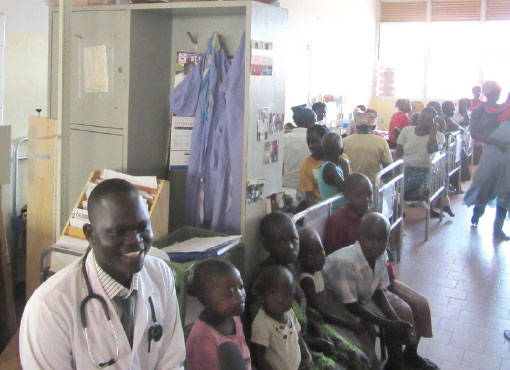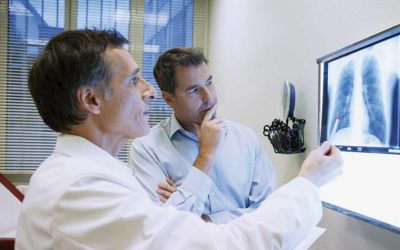
Cancer Control 2015
According to World Health Organization statistics, more than 60% of cancer deaths occur in the developing world, bringing suffering and tragedy to those afflicted. Cancer Control 2015, produced in association with the International Network for Cancer Treatment and Research, brings together articles, case-studies, opinion and experience on the scale of cancer prevalence in emerging health systems and how professionals are confronting the disease.
For featured articles click the boxes below, otherwise for an index of articles from the 2013 edition of Cancer Care 2014, please click here
Featured articles from Cancer Control 2015: (click title to go to full article)
Making cancer control part of the national health agenda: The World Health Organization’s country cooperation strategy and comprehensive cancer control planning
This article provides an overview of the principles behind the World Health Organization’s guidance for national cancer control planning. It also describes the WHO Country Cooperation Strategy (CCS) which enables national governments to integrate cancer programmes into the broader national health agenda and to collaborate with a wide variety of international partners.
The International Cancer Control Partnership: Building capacity in cancer control planning
Julie Torode, Deputy CEO and Advocacy AND Programmes Director of the Union for International Cancer Control (UICC); Kristina Collins, Global Advocacy Coordinator, UICC; bTeam Lead for Planning, Policy and Outreach, Centre for Global Health, National Cancer Institute,...
Cancer prevention and treatment in developing countries: Recommendations for action
Once thought to be challenges for affluent countries alone, cancer, cardiovascular diseases, diabetes, and other noncommunicable diseases are now the leading cause of death and disability in developing countries.
Growing demands to fight cancer in low- and middle-income countries: The response from IAEA’s Programme of Action for Cancer Therapy (PACT)
In this article, the authors review the key drivers for increasing demand for technical support on cancer control from low- and middle-income Member States to the UN system in general, and the IAEA in particular.
The current status of palliative care in India
Mr Rajagopal, Director, Who Collaborating Centre for Policy and Training on access to pain relief and founder-chairman, Pallium Less than 1% of India’s 1.2 billion population has access to palliative care. The efforts by pioneers over the last quarter of a century...
Mobile Technology in cancer control for emerging health systems: Digital divide or digital provide?
We live in an age of technology optimists, where innovation has become a byword for facilitation, improvement and success. In the field of development, information and communication technologies – defined broadly as any technologies used to create, disseminate and manage information, and including the internet, broadcasting mediums, and both fixed line and mobile telephony – have repeatedly demonstrated their use value in offering solutions to challenges facing emerging nations
Developing a library of educational resources for the palliative care community
Danny Burke, Head of Education,ecancer.org; Fiona Rawlinson, Consultant in Palliative Medicine and Course Director, the Palliative Care Education Department, Cardiff University, UK; Gordon McVie, Senior Consultant, European Institute of Oncology, Milan, Italy and...
A partnership model for the training and professional development of health-care staff in low-resource settings
The model of “health partnerships” or “twinning” between hospitals or health-care training institutions in high-income countries and those in low- or middle-income countries (LMICs) has a role to play in addressing global deficiencies in the quantity, quality and accessibility of human resources for cancer control.
Lung cancer in urban China
Ya-Guang Fan, Lung Cancer Institute, Tianjin MEDICAL University General Hospital, Tianjin, China; Hao Liang, Lung Cancer Institute, Sichuan University, Huaxi Hospital, Chengdu China and Youlin Qiao, Cancer Hospital, Chinese Academy of Medical Sciences, Beijing, China...
Prevention of hepatitis B-related liver fibrosis and liver cancer in Africa: The PROLIFICA project
J Howell, Department of Hepatology, Imperial College, London, UK, Centre for Population Health, Marfarlane-Burnet Institute, Melbourne, Australia and Department of Medicine, University of Melbourne, Australia; Y Shimakawa, MRC Unit, Banjul, The Gambia and Emerging...
WHO Framework Convention on Tobacco Control (FCTC): The Sixth Session of the Conference of the Parties
Laurent Huber, Director, Action on Smoking and Health in the United States and Health and Framework Convention Alliance. The sixth session of the Conference of the Parties (COP6) took place in Moscow, Russian Federation, from 13 to 18 October 2014. The session was...
Decentralization of cancer care and hospital-based health technology assessments in Egypt
Amr Shafik Saad, Lecturer in Clinical Oncology, Faculty of Medicine, Ain Shams University, Egypt; Abdalla Abo Taleb, World Health Organization Expert and Consultant, Egyptian Ministry of Health and Khaled Kamal, Assistant Lecturer in Clinical Oncology, Faculty of...









